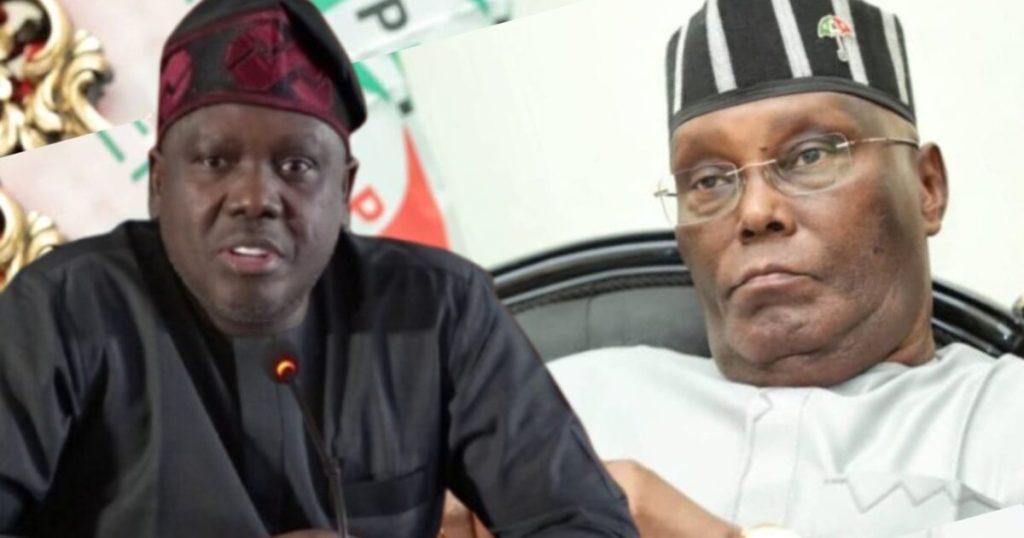The political landscape in Nigeria witnessed a clash of titans as Atiku Abubakar, the 2023 presidential candidate of the Peoples Democratic Party (PDP), responded to criticisms leveled against him by Daniel Bwala, a Special Adviser to President Bola Ahmed Tinubu. Bwala, who previously served as Atiku’s spokesperson, had dismissed the PDP candidate’s political ambitions, prompting a sharp rebuttal from Atiku’s camp. The exchange highlighted the deep-seated rivalry between the two political figures and underscored the ongoing power struggle within the Nigerian political arena. Atiku’s response, delivered through his media adviser Paul Ibe, characterized Bwala’s comments as opportunistic and driven by a desire to appease the ruling administration.
Atiku’s statement emphasized the irony of Bwala, a former member of his own team, now lecturing him on matters of legacy and destiny. It portrayed Bwala’s shift in allegiance as a desperate attempt to gain favor with the current administration, which Atiku described as “floundering” and “shaken.” The statement underscored that Atiku does not need validation from individuals who readily abandon their principles for political expediency, highlighting Bwala’s changing party affiliations as a testament to this lack of conviction. It further asserted that Bwala’s current standing is a direct result of the platform he enjoyed under Atiku’s leadership, suggesting a sense of betrayal and ingratitude on Bwala’s part.
The statement then delved into the perceived obsession of the Tinubu camp with Atiku’s political endeavors. It questioned the relentless attacks against Atiku, suggesting that if he were indeed a “spent force,” as claimed by the ruling party, such efforts would be unnecessary. Atiku’s camp posited that this focus on him stems from the threat he poses to the ruling party, portraying him as the most formidable opposition figure in Nigeria. The coalition being built by Atiku, according to the statement, represents a significant challenge to the “decaying edifice” of the ruling party, hence the concerted efforts to discredit him.
Furthermore, the statement highlighted Atiku’s contributions to Nigeria’s democratic journey since 1999, emphasizing his advocacy for reform, restructuring, and electoral integrity. It contrasted this with the alleged complicity of others, positioning Atiku as a consistent champion of democratic principles. The statement argued that Atiku’s legacy is not defined by holding office but by his courage, consistency, and conviction. It portrayed this legacy as “deeply etched” in the minds of Nigerians, impervious to the attacks of those who have shifted their political allegiances.
Atiku’s response concluded by reaffirming his unwavering commitment to Nigeria’s future, dismissing Bwala’s comments as the ramblings of a “political jester.” It emphasized the urgency of rescuing and rebuilding Nigeria, portraying this as a national priority that transcends petty political squabbles. The statement underscored that the task of revitalizing the nation is too important to be derailed by the personal ambitions of presidential aides, suggesting that Bwala’s actions are motivated by self-serving interests rather than genuine concern for the country’s well-being.
In essence, Atiku’s statement served as a forceful rejection of Bwala’s criticisms, casting them as the product of political opportunism and a desperate attempt to curry favor with the ruling administration. It reiterated Atiku’s commitment to his political vision and portrayed him as a steadfast leader dedicated to Nigeria’s progress. The exchange served to further emphasize the existing political divides and underscored the ongoing battle for influence within Nigeria’s political landscape.














